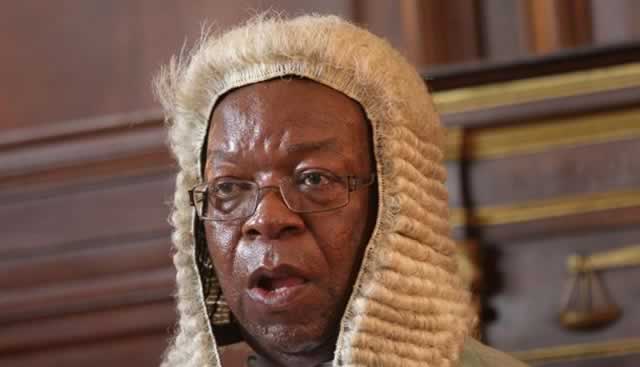‘Tertiary institutions had fruitful tour of international varsities’


Cuban Minister of Science , Technology and Environment , Cde Elba Rosa Perez Montoya (in cream) stresses a point during a meeting with the Zimbabwe delegation led by Higher and Tertiary Education , Science and Technology Development Minister Professor Jonathan Moyo (navy suit) while other officials follow proceedings.
Auxilia Katongomara in Harare
THE country’s tertiary institutions had a fruitful tour of international universities where they gathered information on how to harness science in local institutions of higher learning to industrialise Zimbabwe and create jobs, an official has said.
Chairperson of the stem delegation and University of Zimbabwe Vice chancellor Professor Levi Nyagura told journalists on arrival at Harare International Airport yesterday that the tour was beneficial.
“The visit was very fruitful, we visited South Korea, Cuba, India, Singapore and Brazil. The main purpose of the mission was to observe, to learn of the experiences some of the leading universities in these countries have acquired over a period and the thrust of our visit was focusing on technology, broadly speaking STEM, science and technology and engineering,” he said.
Prof Nyagura said the delegation wanted to confirm that the initiatives the country was undertaking are in line with initiatives taking place in other countries, in particular Asian countries, which have become an economic force to reckon with.
“It is quite clear that industrialisation and modernisation of society has to be driven by STEM and we identified some of these things and some of them have confirmed initiatives we are undertaking here at our universities,” he said.
The delegation, said Prof Nyagura, had also found other interesting initiatives that Zimbabwean universities may need to adopt and put into local context for maximum benefit.
He said there was a need to transform higher education so that it becomes a driving force behind the industrialisation and modernisation of the society.
“Universities have to be centres of incubation for future business and that means we are translating our research via innovation and technological solutions and then of course into enterprises and the thrust we are going to have is to ensure that start ups of enterprises of universities are handed over to industry to upscale and then have mass production of things,” said Prof Nyagura.
“We will have our Ministry which focuses on policy defining a new national agenda for universities and that we think is very exciting. We are all committed to playing our part in terms of contributing to national development via applied research translating the ideas and discoveries and new services into technological services that will empower our country to be competitive regionally, continentally and internationally.”
He said a taskforce has been formed that will drive this initiative.
“It is composed of six members that include me, Great Zimbabwe University vice chancellor, Professor Rungano Zvobgo, Africa University Vice Chancellor, Professor Munashe Furusa, Professor Eddy Mwenje, of Bindura University of Science Education Lupane State University Vice Chancellor Professor Pardon Kuipa and engineer Quinton Kanhukamwe, vice chancellor of Harare institute of Technology,” he said.
Professor Nyagura said there were no gaps in the country’s academic structure but there should be intensification in line with the new technologies.
Addressing the delegation after the last stop in Brazil, Higher and Tertiary education, Science and Technology Development Minister Professor Jonathan Moyo said universities needed to review their mandates to the new paradigm shift.
“There’s no university whose mandate is okay. All mandates are up for grabs. The position to say we have one university which is doing this and another doing that must not be possible. It would be inconsistent with the new normal to have one university saying this is our niche and another… that doesn’t make sense,” he said.
He proposed that all universities have faculties of medicine, engineering, technology as well as culture and heritage studies in line with the transformation.
Prof Moyo emphasised that all universities should embrace STEM with an emphasis on technology and engineering to respond to Zimbabwe’s quest for industrialisation and modernisation.
He said for the universities to achieve new goals they must review staff competences, review qualifications for entry by students as well as increase enrolment.
Minister Moyo highlighted that transformation of the country’s universities was not an overnight initiative as there were challenges of human resources and infrastructure.
The tour to industry incubating industry universities by the Higher and Tertiary Education Minister, vice chancellors, Ministry officials is part of a drive to revolutionise local universities to redirect their mandate.
The Ministry through the STEM 263 initiative wants to promote a robust industrialisation of the country’s tertiary institutions through an increase in science and technological uptake.
This precedes the Ministry’s STEM programme introduced in high schools last year meant to increase students studying science, engineering and technology.
The STEM 263 initiative’s timeframe is between 2016 and 2020.











Comments